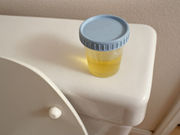Could lead to greater reliance on much more costly intravenous medications
WEDNESDAY, March 16, 2016 (HealthDay News) — Many children who develop urinary tract infections (UTIs) tied to the Escherichia coli bacteria are now failing to respond to antibiotic treatment, according to research published online March 15 in The BMJ.
The study team reviewed 58 prior investigations conducted in 26 countries that collectively looked at 77,783 E. coli isolates in urine samples.
Across industrialized nations, 53.4 percent of the pediatric UTI cases were found to be resistant to amoxicillin, one of the most often prescribed primary care antibiotics. Nearly a quarter (23.6 percent) of young patients in industrialized nations were resistant to the antibiotic trimethoprim; 8.2 percent were resistant to co-amoxiclav. Among children in developing nations, resistance was even higher. In poorer countries, 79.8 percent of childhood UTI cases were resistant to amoxicillin, and 60.3 percent were resistant to co-amoxiclav. More than a quarter (26.8 percent) were resistant to ciprofloxacin, and 17.0 percent to nitrofurantoin.
Grant Russell, Ph.D., head of the School of Primary Health Care at Monash University in Melbourne, Australia, and author of an accompanying editorial, warns that if current trends persist, it could lead to a serious situation in which relatively cheap and easy-to-administer oral antibiotics will no longer be of practical benefit to young UTI patients. The result would be a greater reliance on much more costly intravenous medications. Preventing such a scenario is a “global responsibility,” Russell told HealthDay, with the goal being to rein in the use and abuse of antibiotics.
Copyright © 2016 HealthDay. All rights reserved.








